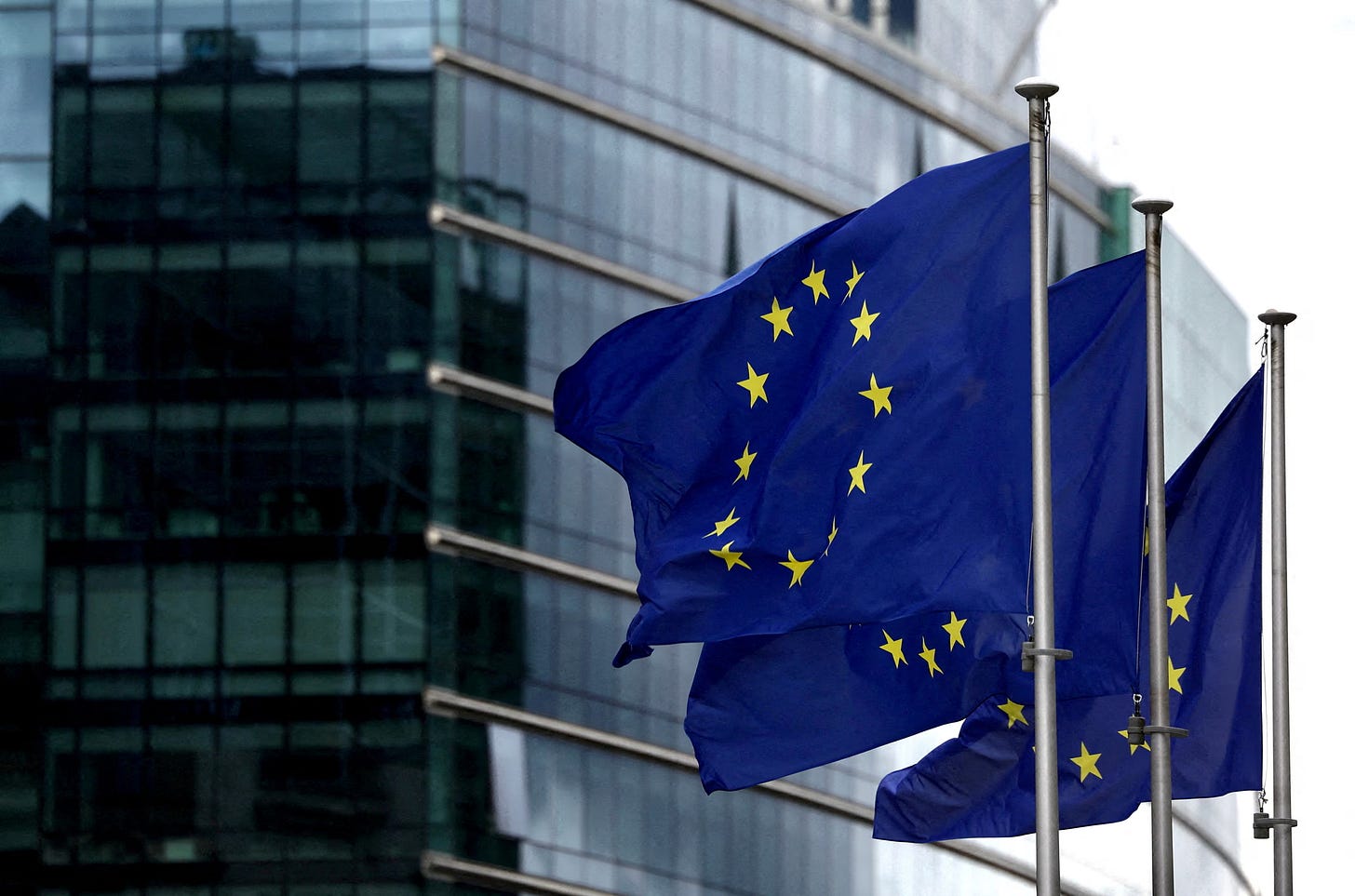Swiss ESG Landscape Update – June 2025 Edition
A briefing on the current regulatory environment and what lies ahead for Swiss companies
As global momentum around sustainability continues to build, Switzerland is rapidly evolving its ESG (Environmental, Social, and Governance) regulatory landscape, transforming best practices into binding legal obligations. With 2024 marking the first full reporting year under key new frameworks such as the Ordinance on Climate Disclosures (OCD)1 and the Swiss Code of Obligations' non-financial reporting requirements2, companies are now facing increased pressure to align their operations with both national climate goals and international transparency standards.
At the same time, the introduction of the Swiss Climate and Innovation Act (SCIA) in 2025 further raises the bar by imposing net-zero targets across all sectors and company sizes3. Coupled with growing enforcement activity, the risk of legal and reputational consequences for non-compliance is no longer theoretical.
This newsletter provides a comprehensive overview of the current ESG compliance environment in Switzerland, highlights the most critical regulatory developments for 2025 and beyond, and outlines practical implications for companies navigating this new terrain. Whether you're a sustainability leader, a compliance officer, or a member of the board, staying informed and proactive in your ESG strategy has never been more essential.
ESG Reporting in Switzerland: The 2024 Reporting Cycle
As of May 2025, Swiss companies are navigating an increasingly robust regulatory landscape for environmental, social, and governance (ESG) disclosures. This landscape combines national legal requirements with international expectations, particularly from the EU. Here's what companies need to know when reporting on the 2024 business year.
Legal Requirements for Non-Financial Reporting
Swiss legislation under Articles 964a–c of the Swiss Code of Obligations (CO) mandates non-financial reporting for companies considered of public interest. These include publicly listed companies, banks, and insurance providers that meet the following criteria:
500 or more full-time employees (FTE)4
Either a balance sheet total of more than CHF 20 million or annual revenue exceeding CHF 40 million
Companies must apply a "comply-or-explain" approach, whereby they either disclose how they address environmental, social, employee, human rights, and anti-corruption topics (e.g., policies, due diligence, key risks, and KPIs), or clearly explain why no such measures are in place.
This promotes transparency and empowers stakeholders to judge whether the company's explanations are reasonable. For example, if a company lacks a human rights policy, it must explicitly state the rationale, such as sector irrelevance or limited operational exposure.
The Ordinance on Climate Disclosures (OCD): A Game Changer
Effective 1 January 2024, the Ordinance on Climate Disclosures (OCD) expands on existing corporate obligations, requiring companies to report both their climate-related risks and their environmental impact. This is an approach known as double materiality. Aligned with the TCFD framework, disclosures must cover governance, strategy, risk management, and key metrics, including GHG emissions.
A central feature of the OCD is the requirement for a transition plan consistent with Switzerland’s net-zero 2050 target. This includes reporting on Scope 1 and 2 emissions, and where feasible, Scope 3, alongside descriptions of high-impact activities, emissions reduction technologies, and NETs. Companies must outline a clear reduction pathway with intermediate milestones and a roadmap for addressing residual emissions.
Firms must also disclose quantitative GHG reduction targets, including underlying assumptions, methodologies, and scenario analyses—particularly important for financial institutions.
OCD reporting must be board-approved, submitted to the AGM, and publicly available. Reports must be human-readable, and from 2025, machine-readable. Legal liability applies to board members for false or missing disclosures, with fines up to CHF 100,000.
The SIX Swiss Exchange supports transparency with optional ESG reporting and has introduced a Climate Equity Flag to highlight firms aligned with 1.5°C goals, helping investors identify climate-forward companies.
Enforcement on the Rise
Swiss authorities and civil society are increasing scrutiny of corporate climate and ESG disclosures. Several companies have already faced legal investigations or court proceedings due to non-compliance with reporting obligations. The regulatory emphasis is shifting from voluntary participation toward a more rigorous enforcement of disclosure quality, accuracy, and timeliness.
Major Legislative Shift: The Swiss Climate and Innovation Act (SCIA)
The Swiss Climate and Innovation Act (SCIA), which came into effect on 1 January 2025, marks a major shift in the country’s climate policy. It is enforced through the supporting ordinance SCIO, which implements the federal climate strategy through both sector-specific and economy-wide net-zero requirements.
This legislation applies to all companies, regardless of size, and obliges them to achieve net-zero emissions for Scope 1 and 2 by 2050. The SCIA also introduces a climate mitigation hierarchy that prioritizes emission reductions, followed by removals through technologies such as carbon capture and storage (CCS) or other NETs, and lastly, carbon offsetting with a preference for domestic projects.
To support this effort, sector-specific emissions reduction targets have been established for buildings, transport, and industry. The Federal Office of Energy released a guidance document titled “Fahrpläne Netto Null” (Net-Zero Roadmaps) on 14 February, 2025 to aid companies in aligning their strategies and disclosures with these goals.
EU Alignment and the Omnibus Package
Although the EU Omnibus Directive, which proposes to adjust the timeline for the Corporate Sustainability Reporting Directive (CSRD), has not yet been officially adopted, its anticipated effects are already influencing Swiss corporate behavior.
The directive is expected to delay CSRD compliance by two years, which would allow Swiss subsidiaries of EU-based firms to defer their reporting obligations until the financial year 2028. Nonetheless, large multinational companies such as Holcim are continuing their preparations, viewing alignment with EU peers and meeting investor expectations as essential priorities.
In contrast, mid-sized and smaller Swiss firms, particularly those with limited exposure to the EU market, are using this delay as an opportunity to reassess their CSRD strategies or slow down implementation efforts. Even though compliance is not immediately mandatory for all firms, voluntary alignment with CSRD or ISSB (International Sustainability Standards Board) frameworks is still seen as advantageous for reputational positioning and strategic planning.
Note: As of June 25, 2025, the planned revision for international alignment of the Ordinance on Climate Disclosures (OCD) has been temporarily paused by the Swiss Federal Council. While current obligations remain in force, the revision is paused because of uncertainty around the omnibus package and the broader international regulatory landscape.
Strategic Insights for Swiss Companies
Given the evolving and multi-layered ESG landscape, companies should consider the following strategic actions:
1. Strengthen Governance Structures
Boards must embed ESG topics, particularly climate governance, into their oversight and risk frameworks. Directors should receive training and ensure ESG is routinely discussed at the executive level.
2. Integrate ESG into Core Strategy
With net-zero requirements and climate transition plans now mandatory, ESG should no longer be seen as a standalone issue. Companies must integrate it into corporate strategy, capital allocation, and supply chain management.
3. Enhance Data Capabilities
Prepare now for machine-readable reporting and scenario analysis. Invest in robust data management systems to track and quantify ESG performance across operations and the value chain.
4. Engage Stakeholders Proactively
Transparent ESG communications help manage expectations from investors, customers, regulators, and employees. Consider issuing voluntary TCFD or ISSB-aligned reports, even if not legally required yet.
5. Monitor Global and EU Regulatory Developments
Given Switzerland’s deep integration with EU markets, companies should continue monitoring CSRD, ESRS, and taxonomy regulations to stay ahead of future compliance obligations.
Final Thoughts
Switzerland's ESG regulatory landscape has undergone a dramatic shift, moving from voluntary principles to legally binding requirements with enforcement teeth and personal liability. With new obligations like climate transition plans, quantitative emissions disclosures, and net-zero roadmaps, Swiss companies are entering a new era of accountability and transparency.
Those that move early, not just to comply, but to lead in sustainability performance and reporting quality, stand to gain not only investor trust but long-term competitive advantage.
How Brightest Can Help
Worried about navigating this rapidly evolving regulatory landscape? Brightest’s propriatary software can help enhance and simplify ESG reporting. Additionally, our knowledgable team is available to questions and assist your organization in their sustainability journey.
This Week in Sustainability is a weekly email from Brightest (and friends) about sustainability and climate strategy. If you’ve enjoyed this piece, please consider forwarding it to a friend or teammate. If you’re reading it for the first time, we hope you enjoyed it enough to consider subscribing. If we can be helpful to you or your organization’s sustainability journey, please be in touch.

















